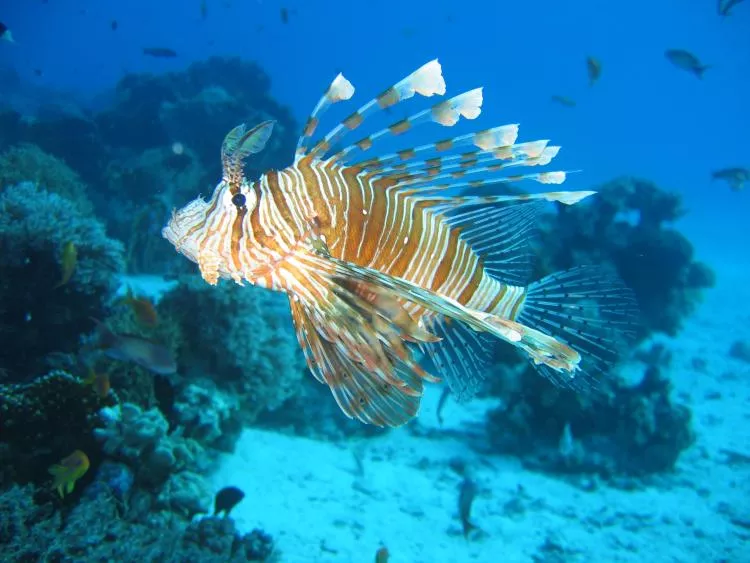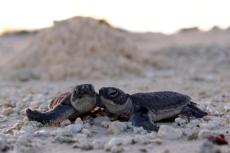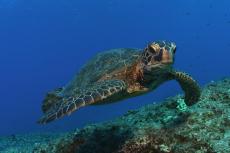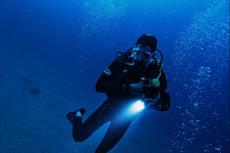Most lionfish too deep for divers to reach
Lionfish, an invasive species that is taking over coral reefs and preying on native fish in the Atlantic Ocean’s waters, have become such a problem that divers in Florida and the Caribbean are asked to capture and eat them.
Lionfish, which have spines that contain venom, are a well-known problem in Atlantic coral reefs. These invaders from the tropical parts of the Pacific and Indian oceans have no natural predators in the Atlantic Ocean. They are eradicating many fish populations in the shallow reefs that they have overtaken. Recently, the overwhelming problem has proven worse than originally thought.
Wildlife officials and researchers are concerned that lionfish may destroy conservation efforts targeting the re-growth of populations of native Atlantic predatory species such as groupers and snappers.
Divers are asked to capture and consume any lionfish they meet in an effort to protect reefs and native marine life. So divers can harvest as many as possible, The Florida Fish and Wildlife Conservation Commission has waived the recreational license requirement and excluded lionfish from bag limits.
Little was known about the effects of the invasive species at depths deeper than recreational limits because so few divers venture into this environment. In a recent expedition in a submersible, Oregon State University’s lionfish expert, Stephanie Green, discovered a disturbing scene -- a wreck at 250m loaded with lionfish, far beyond Green’s expectations.
Eat sustainably, eat lionfish!
—NOAA
“We are capable of doing a good job of controlling lionfish at diveable depths, in shallower areas. Divers and spearfishers can go in and remove the fish,” said Green. “But the lionfish are abundant in large numbers at these deeper habitats, and that’s really where the next frontier of this battle is going to be, in those deep water areas.”
According to researchers, lionfish grow bigger and are more populous in the Gulf of Mexico than in the species’ other native areas in the Pacific and Indian oceans, leaving Floridian divers with a substantially larger job that previously anticipated.
Dive shop operators, conservationists and many restaurants have been trying to slow down the growth by turning lionfish into menu options. In addition, lionfish tournaments are held all over Florida and the Caribbean.
In 2012, the National Oceanic and Atmospheric Administration launched a campaign urging everyone to “eat sustainable, eat lionfish!”
- Log in to post comments













































